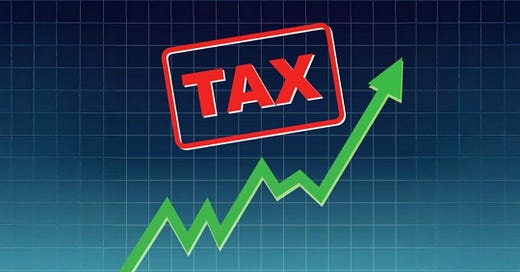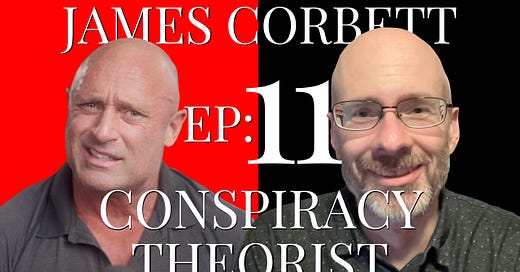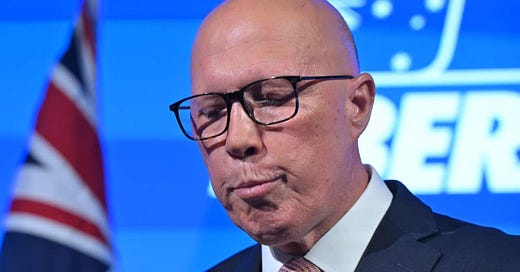
There’s no comprehensive or conclusive list of all the taxes levied on Australians by our three levels of government. For the statists who hold public office or occupy our bloated bureaucracies, that's a convenient hurdle to calculating the true cost of government.
There are a litany of phrases to describe the various forms of taxation: duties, fees, charges, rates, contributions, excises, levies, assessments, tariffs, premiums, tolls, penalties, permits, licenses, rents, adjustments, offsets and fines – the list goes on.
In 2010 the Henry Tax Review identified more than 125 different taxes, stating the obvious that "Australia has too many". Approximately 90 per cent of tax revenue is collected through just 10 of them – income tax, company tax, GST, payroll tax, fuel excise, council rates, stamp duty, superannuation contribution tax, tobacco excise and land tax.
Unlike wages, tax revenue continues to grow at an historic high as a percentage of GDP – approximately 30%.
Many of the 125 taxes identified in the Henry Tax Review are hidden in the cost of the goods and services we buy every day. Libertarians are well-placed to uncover the extent to which these hidden but invasive taxes continue to increase and multiply. If you can’t reduce, simplify or eliminate a tax – exposing it is probably the next best thing.
When politicians and bureaucrats talk about ‘tax transparency’, they are usually trying to pass onerous new laws requiring us to divulge more information in a bid to crack down on tax evasion.
That shock could be just the motivation needed for a serious conversation about tax reform and reducing the tax burden.
But maybe it’s the government’s turn to be more transparent – why can’t we know how much tax we pay in total?
I spent four years in local government as an elected councillor and mayor. I know all too well that people hate council rates. Nobody likes getting a bill in the post with an exorbitant figure and a due date. For four years I voted against every rate increase. Unfortunately, I became accustomed to losing those fights.
However, we can’t say that council rates aren’t transparent – we know how much we must pay, how it was calculated and when it’s due. Transparency around how that money is spent is a discussion for another day, but in fairness to our local councils, we know how much they’re charging us.
That makes paying this tax an unpleasant and jarring experience. I don't think it's outlandish to suggest that our most transparent taxes are also, by and large, the most hated. However, local government accounts for just ~3% of tax revenue in Australia, compared to ~17% for state governments and ~80% for the federal government. Dare I say, the hate does not seem proportionate.
We also know exactly how much GST we pay because we know the rate is 10% and it’s neatly and transparently itemised on our receipts. Similarly, for PAYG employees, income tax is itemised – it’s on your pay slip. Again, very transparent.
It’s easy to hate these taxes because we can identify them. The transparency also makes it easy to target them for reduction or elimination.
Hidden taxes are different. Consider the simple act of driving a car. Putting aside the stamp duty, luxury car tax, tolls and annual registration fees you’ve already paid, every time you fill up your tank approximately 50 cents per litre is fuel excise. It’s a tax most drivers pay without realising it. It’s not itemised on the pump and there’s no line item on your receipt. It’s a hidden tax that quietly siphons money to the government.
When you buy a beer, the bartender doesn’t tell you that your schooner would be almost $1 cheaper if we abolished alcohol excise.
Everything we buy has tax hidden in the price. Goods imported from overseas include customs duties. The business that employs the retail worker who sold you the goods is charged payroll tax, which is passed on to you without itemisation in the price of those goods. Every business owner striving for profit recovers the cost of company tax by adding it to the cost of their goods or services. You won’t see business permit fees, license fees, insurance duties or energy surcharges itemised on your receipt either, but you’re paying for it.
The cost of insurance has soared recently. In Victoria, a 10% duty is charged on general insurance premiums, including car and home insurance. A similar tax exists in other states. The Victorian State Revenue office declares that it’s “a cost that is generally passed on to you in the premium you pay.” I don’t know what they mean by “generally” – I’m not sure who they think is paying if not the customer.
Local government accounts for just ~3% of tax revenue in Australia, compared to ~17% for state governments and ~80% for the federal government.
The problem is these taxes are not transparent. If the price of groceries or utilities goes up, do we realise how much of that is due to increased, embedded taxes along the supply chain? High taxation is bad enough, but high taxation without transparency is worse.
If Australians saw a full account of the tax they pay each a year – if it arrived in the post like their council rates – there would be a collective gasp. That shock could be just the motivation needed for a serious conversation about tax reform and reducing the tax burden.
Imagine if every receipt showed not only the 10% GST you just paid, but also an estimate of all the other taxes built into the price. Businesses could start doing this voluntarily to send a message.
Victorian Libertarian Senate candidate Jordan Dittloff recently demonstrated exactly what the insidious excess of hidden government taxation is costing us when he partnered with a petrol station to eliminate fuel excise for an hour. The price plummeted to below $1 per litre and there was a queue of cars around the block.
As libertarians, we are all diligently plotting to take over the world so that we can leave people alone. We need to recruit people to the cause. If we want Australians to hate tax as much as we do and help us fight the battles of tax reduction and elimination, then we need to expose these hidden costs. Hidden taxes make our three levels of government bigger than most people realise.



















Great article, Steve. I remember reading a related, insane statistic many years ago that something like 80% of the taxes in Australia cost more to administer than they collect in revenue. So the government COULD slash taxes, slash red tape, lower prices, reduce inflation, increase productivity AND improve government's own financial position, all by axing these ridiculous taxes. But they will not.
Great debut article Steve! Tax transparency would be a good start.
Here's The Long, Long, Long, Long List of Taxes I compiled in 2022. Read and weep!
https://www.libertyitch.com/p/the-long-long-long-long-list-of-taxes